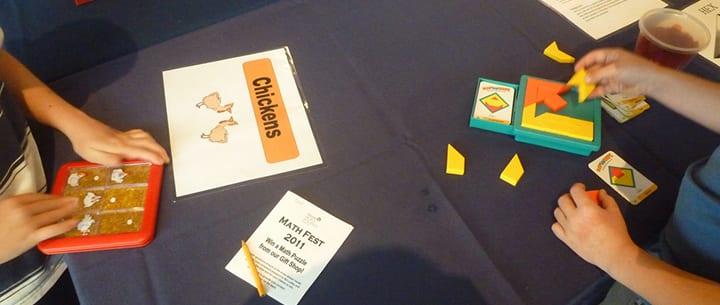 Is your child struggling in school? You probably know that having a few tools to aid your child with math help is better than just one single approach. While hiring a private tutor can be a huge help, what happens the rest of the week in between meetings with the tutor is also important. So how can you as a parent help your child learn math when the tutor isn’t sitting alongside you? Here are some ideas:
Is your child struggling in school? You probably know that having a few tools to aid your child with math help is better than just one single approach. While hiring a private tutor can be a huge help, what happens the rest of the week in between meetings with the tutor is also important. So how can you as a parent help your child learn math when the tutor isn’t sitting alongside you? Here are some ideas:
Have a Positive Attitude
One of the biggest hurdles you need to overcome in order to be successful is to maintain a positive attitude toward math in the first place. If you give your child the impression that math isn’t fun or that it doesn’t come easy to you, then he or she may mimic that attitude toward the subject, as well. Instead, even if you’re thinking to yourself that “math never comes easy to me” or that “these problems look really hard,” try to take a positive approach. Encourage your child at all times, and give praise when he or she grasps a new concept.
As you’re monitoring your child’s math work, ask him or her to explain anything that doesn’t hit home right away. This will not only reinforce anything that you’re shaky on, but will give your child a chance to brush up on the concept. If you understand it better after the explanation, chances are your child also understands it well!
Find Math Problems in Unexpected Places
Another great tool is to find math problems in everyday life. If you’re on a car trip, turn the ETA into a word problem. Give your child your average speed (this is easy if you’ve got cruise control set!), figure out the mile marker of your destination and the mile marker you’re currently at, and ask your child to determine how long it will take to get there. If you’ve got a GPS, you can double check the answer to some extent, as long as your GPS model calculates based on actual speed, not the speed limit or traffic conditions.
Word problems don’t have to be limited to car trips, either. If you’re grocery shopping, ask your child to add up a few prices for you. This can be as simple as asking him or her to give you prices by weight for two different items, and you can double check the work again by using the grocery store’s price stickers on the shelves if they’re available. Now you’re not only giving some math help to your child, you’re teaching him or her to be a savvy shopper!
For math help in everyday life, feel free to get creative. Anything with numbers can be turned into a math problem to solve. Chances are you’re better at math than you might admit, and have been doing some simple math problems everyday without even knowing it. The next time you’re trying to solve one of these off-the-cuff math issues in your head, encourage your child to solve it with you! That way you’re reinforcing math concepts, as well as encouraging your child at the same time.
Sit in on Private Tutoring Lessons
When your child heads to his or her tutoring lesson, ask to sit in from time to time. You won’t have to let it be known that you’re trying to gain some extra math help by doing so, just express an interest in your child’s learning. You’ll be able to see what your child has been learning at the lesson, and what concepts the tutor is addressing for the near future. Your child’s tutor can show you firsthand how the lessons are going, and you’ll gain a better understanding of the concepts at hand, as well.
If you have questions on anything addressed in the private lessons, save them for after the lesson is done. Ask your child to explain it to you in his or her own words, and only accept the answer when you have a complete understanding of it yourself. That way, you can avoid a superficial answer and actually understand the topic yourself. An incomplete answer means your child may not have completely grasped the issue either, and this will encourage him or her to take another look at the matter until everything is clearly understood. As always, maintain a positive attitude toward math, and praise correct and complete answers!
Photo by Trevor Prentice
Megan L.

